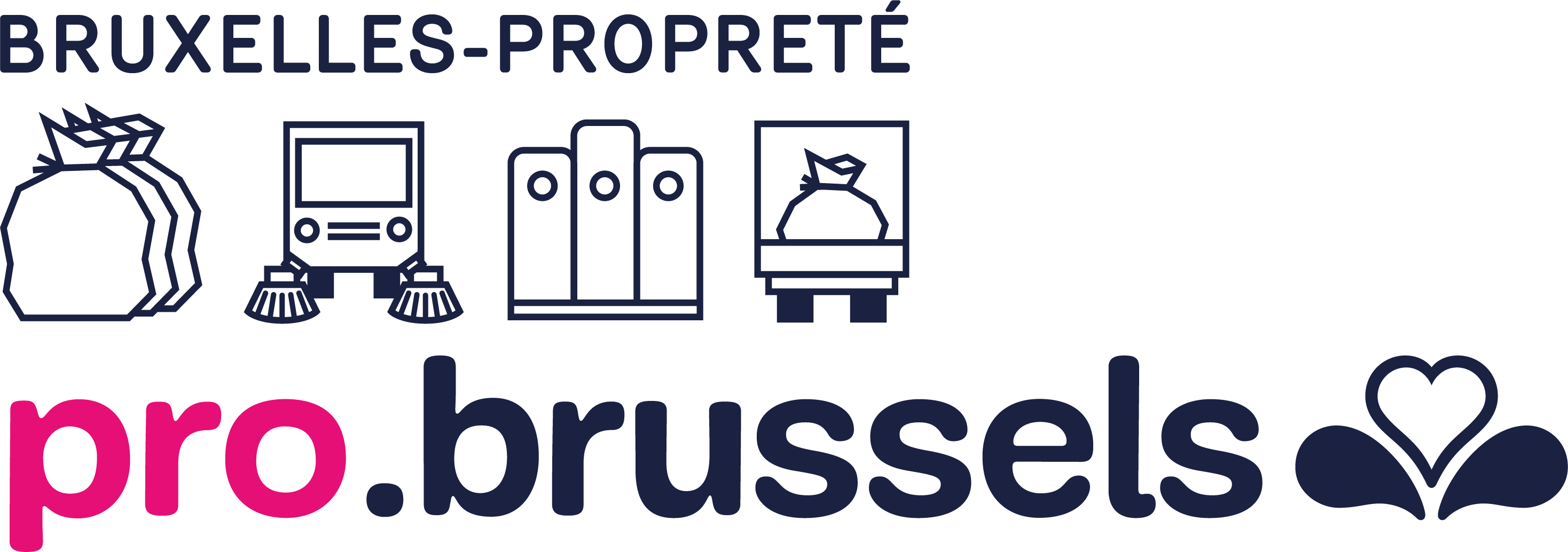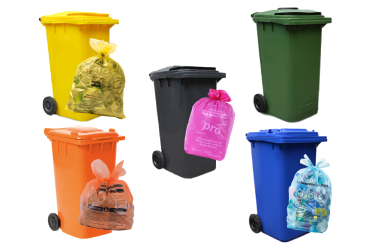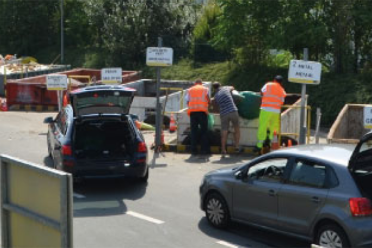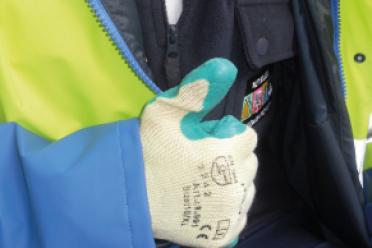Please note that the small orange bin (25L) and the orange containers (140L / 240L) are primarily intended to protect the bags from stray animals when they are presented for collection.
Concerning the small orange 25 L containers for food waste: you must use orange PRO bags exclusively sold by the Agency. The food waste bags must always be well tied in the orange container. Our collection teams will take away your orange bags and leave the small orange containers on the sidewalk so that you can reuse them the next time you have to put out your container.
For the large 140 L and 240 L containers: you can put your food waste in bulk in the orange containers that were provided to you as part of your commercial contract with the Agency. However, for reasons of hygiene and cleanliness, we recommend that you place your food waste in a garbage bag before throwing it into the orange container. The bags must either be orange bags from Bruxelles-Propreté or clear, colorless bags. If you use opaque bags, they will be considered non-compliant for organic collection.




